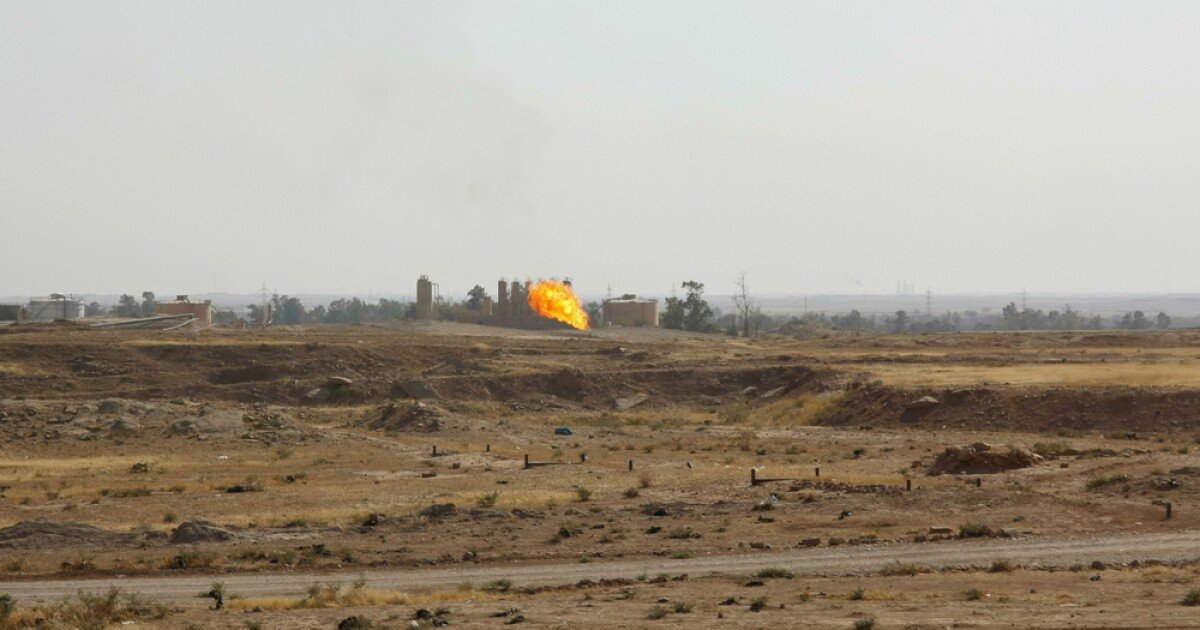BP hopes to strike a deal to develop Iraq’s giant Kirkuk oil field in the coming months, as it shifts its attention back to the Middle East, CEO Murray Auchincloss said on Monday.
Auchincloss also told the Energy Intelligence Forum that BP is “very much looking forward” to working with the administration of US President-elect Donald Trump, amid hopes that regulatory reforms will facilitate the company’s plans to hike its US oil and gas output.
The UK major has been placing a greater emphasis on its traditional upstream business under its new CEO, who was appointed in January.
He highlighted the company’s exploration activities — and hopes of success — in Brazil, where it plans to drill “five big wells” in the next few years, as well as Namibia and the US Gulf of Mexico.
‘Back to the Middle East’
The company is also focusing on upstream development projects, with Auchincloss saying it is “back to the Middle East for BP,” and adding that “you can’t just count on exploration.”
The BP boss signed a memorandum of understanding (MOU) with Iraq’s Oil Minister Hayan Abd al-Ghani in August about negotiating an integrated redevelopment of the giant but mature Kirkuk oil field.
“We’re very excited about that opportunity,” he said, adding that he would like to see a formal agreement signed before February.
“It’s five domes, 20 billion barrels [of oil] yet to produce, very competitive terms internationally now and a government that’s willing to work with [us] in a much-stabilized security situation as well.”
Iraq has enjoyed a period of political stability over the past two years and has been relatively insulated from the Mideast conflict.
However, some analysts warn that Trump’s return to the White House risks inflaming US-Iran tensions, which could destabilize Iraq and endanger Western companies there.
Auchincloss gave no further details about the Kirkuk project, but the MOU he signed envisages developing Kirkuk and several adjacent oil fields, which currently produce around 250,000 barrels per day, as well as investment in gas, solar and exploration activities.
If a development contract is agreed, it would mark a major expansion of BP’s already significant presence in Iraq, where it is the lead contractor at the supergiant Rumaila field in Basrah that produces roughly one-third of Iraq’s total crude output.
Auchincloss also flagged BP’s interest in new opportunities in Oman, Kuwait and Abu Dhabi, where it signed an agreement in July, along with TotalEnergies, Shell and Mitsui, to each take 10% stakes in state oil firm Adnoc’s 9.6 million ton per year Ruwais LNG export project.
The two-train plant is expected to start up in the second half of 2028, with the four equity partners also given the option to sign LNG offtake deals.
US Optimism
The US is also central to BP’s plans to grow its oil and gas production, and the incoming Trump administration is expected to give its full support to facilitate such plans, in contrast to the outgoing Biden administration’s emphasis on transitioning to green energy.
“We think [the Trump presidency] is a strong chance to help the US … getting regulatory reform in place, getting past the permitting and really allowing construction to move forward. That’s what we’re most hopeful for — because the US has been struggling in that space,” Auchincloss said.
BP is aiming to raise its oil production in the US, including the Gulf of Mexico and the Permian Basin, from 650,000 b/d last year to 1 million b/d by the end of the decade.
But Auchincloss also underlined the “tremendous opportunities” that the artificial intelligence revolution — and expectations of an accompanying surge in electricity demand — open up for natural gas in the US, where BP has 30 trillion cubic feet of resources “waiting to be developed” in the Permian, Eagle Ford and Haynesville basins.
Big data centers will “seek out solar power, they’ll seek out wind power,” he said. “But baseload, we think, is going to have to be natural gas. There’s just no [other] option for the pace we’re moving at this decade.”
